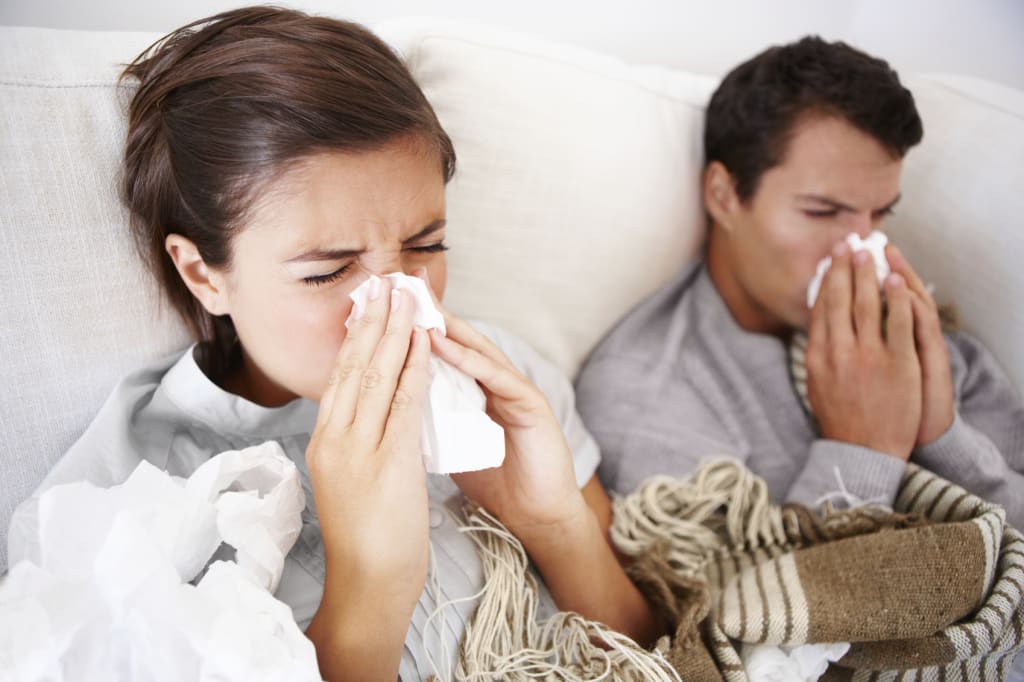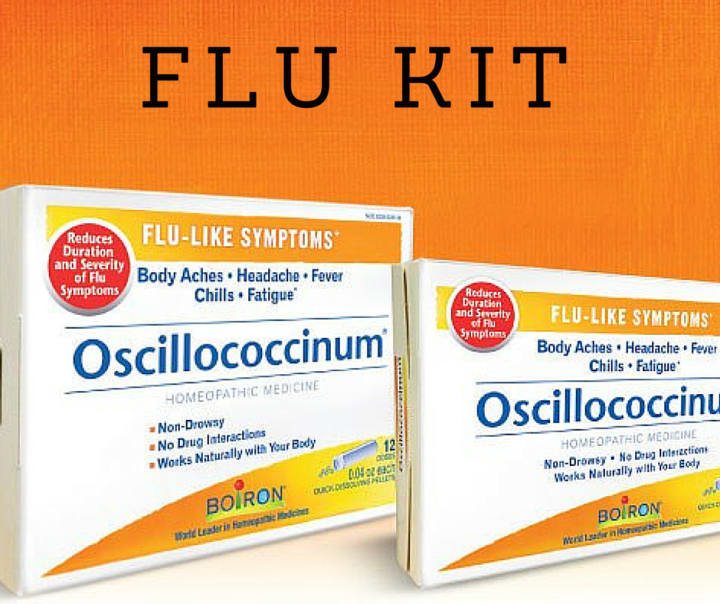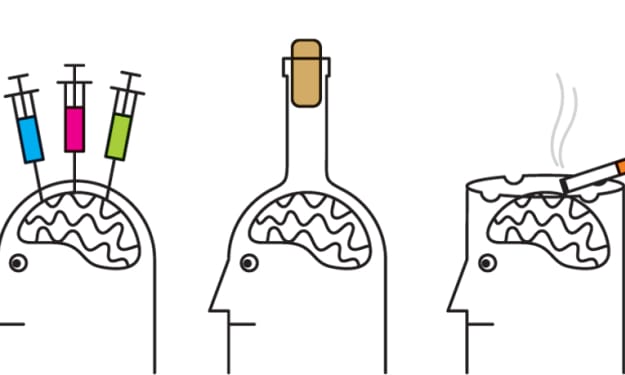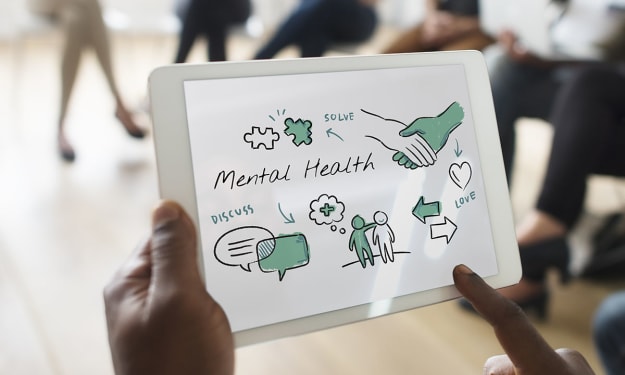Is Georgia the 'Sickest State' in the Country This Flu Season?
A Critical Look at a Popular Claim That Is Circulating the Peach State

If you are like most people in the US this flu season, you probably find yourself scrolling through your social media news feed regularly or watching your local news stations and coming across more than one seemingly reputable news article entitled “Georgia Named Sickest State in the Country.” Maybe you shared it. Perhaps you didn’t even read it, but the headline was enough to cause concern for the well-being of your family and friends—reasonably so. There is no doubt that this flu season has been a harsh one but with the media taking any anecdotal evidence and running with it, it’s difficult to tell what’s real and what’s “clickbait.”
A company called “Kinsa” that tracks symptoms using an app and digital thermometer, has stated that 7 percent of Georgians have fallen sick with the flu. That equals out to be about 715,000 people out of a population of 10.31 million. Now, before you strap on that surgical mask and attempt to inhale Lysol, let’s do some research.
According to their website, “Kinsa” is a smart thermometer that you use by downloading their app to your smart phone and connecting the thermometer to the app via Bluetooth technology. The apps’ features include an accurate measurement of temperature within seconds, tracking of symptoms and health history and even reminders to take medications, along with other features. The product price ranges from $14.99–49.99 and is available in different styles. I have to say, sounds like a great product.
As per the article making its rounds in our media outlets, it’s stated the company’s data has been in line with data collected by the CDC over the past three years. A statement from within Kinsa has been quoted:
Grammatical errors aside, this quote tells us that the CDC does not use Kinsa’s system in collecting data related to influenza during any given U.S. flu season.
It’s important to use our critical thinking skills here—We must consider that the data collected from Kinsa is based on a reflection of only those who own and use this thermometer accurately and to its greatest capacity and it’s not reflective of those who use a traditional thermometer or none at all. Could it simply be possible that more people in Georgia own and use this device? Also, we must remember that not every fever is created equal and even some of those with flu-like symptoms who manually input their symptoms in the app’s database, may not actually have the flu that has been bombarding the "Peach State" alongside with the remaining 49. Although the source tells us that data collected through the Kinsa system has mirrored CDC data in previous years, these claims have not been verified by a CDC representative as of 2/10/2018.
Before I continue, I want it to be known that I don’t believe this company to have any ill-will intentions and I have no interest in bringing a negative connotation to their brand. In fact, I think the smart thermometer is neat and a great tool for anyone (I wish I would have known about it sooner). I am simply sharing my opinion on the information I have gathered regarding an article circulating our beloved world wide web. This is not an opinion formed out of malice, rather, it is one formed out of a sincere inclination to reach the truth.
However, the company claims that 700,000 of 1 million users are Georgians with flu-like symptoms. That leaves only 300,000 users from other states in the country. If every single user uses the device correctly and consistently, that would still conclude that the majority of Kinsa users are just residents of Georgia and not necessarily reflective of a national epidemic. It can also be noted that the company has average ratings of 2.7 and 2.8 on the Apple app store and Google Play store, respectively, with complaints ranging from inaccuracy and incompatibility with devices, to others. You can also find complaints of inaccurate temperature readings on their Twitter mentions: @Kinsa_Support.
Like every year, once flu seasons hit, people begin to share their tips and tricks to alleviating their foreboding symptoms. This year particularly, I have noticed a trend with more and more individuals buying in to and using homeopathic remedies to soothe their aches and pain. More specifically, the product “Oscillococcinum” has been referred by more than one friend to another these past few months via their Facebook news feed for the use of flu symptom alleviation. Perhaps you’ve seen it?

Image from Facebook.
This product is labeled as a homeopathic remedy. Homeopathy is, well, not medicine. Not in the slightest. This “alternative medicine” is said to work by taking minute doses of natural substances in an effort to create similar symptoms to what one is attempting to cure. This, in turn is supposed to… heal you? The amount of the inactive “medicine” that you are taking is so minute, that it is undetectable. The only scientifically detectable substances in homeopathic medicine consist of water, alcohol and sugar. Studies have shown there to be little evidence supporting the effectiveness of homeopathy for any illness other than, you guessed it, the anecdotal kind that can likely be the result of, you guessed it again, the “placebo effect.”
These facts didn’t stop the company called “Boiron” that makes Oscillococcinum from advertising their products all over the web this flu season and facts certainly didn’t stop people from buying said product. Some place near me even sold out. The company, although latent with misinformation, probably also isn’t selling products with evil intentions, but I can’t help but think that they have glossed over the truth about homeopathy. It’s also true that the manufacturer of the product found themselves in hot water with the United States Food and Drug Administration, along with the FCC in 2009/2010 for claiming their product “cured” the H1N1 virus.
I suppose an important question would be whether it is morally corrupt to use the fears of a country as a capitalization device in the pursuit to sell products.
Most recent studies on the effectiveness of Oscillococcinum:
Homeopathic Oscillococcinum® for preventing and treating influenza and influenza-like illness.
Further reading:
Oscillococcinum: Can It Really Cure Flu Symptoms?
Even though I’m sure that the smart-thermometer company “Kinsa” isn’t tricking buyers with false promises like calling their product “medicine,” it’s interesting to note that shortly after I entered their website, I was met with a digital pop-up “flu season coupon.”
Fellow Georgians, I know it’s easy for us to trust everything we read or hear online, especially when it comes to a potentially deadly virus infecting our family, but the misrepresentation of facts that are perpetuated with an all-caps, doomsday-esque, fear-mongering headline, can be detrimental to our collective mental health. I, myself, fell victim to it this season. Practicing our critical thinking skills is paramount to combating this misconstrued information.
YES, this flu season is a rough one.
NO, it’s not the worst there has ever been.
YES, people die from the flu every year.
YES, most people infected with the flu, fight off the virus just fine.
NO, the flu vaccine doesn’t cause the flu.
YES, the flu vaccine can prevent the flu, whether a stranger on Facebook said they’ve “never had a flu shot and never got the flu until they did receive the shot,” or not.
NO, anecdotes and subjective experiences don’t equal facts.
NO, alternative medicine does nothing to cure your ailment.
NO, Georgia has NOT been named the “Sickest State” by any reputable entity reviewing accurate influenza data for the 2017/2018 flu season, like the CDC.
I want to stress that this flu season is a bad one and I don't want to minimize its severity so, please continue to keep yourself and your loved ones healthy this flu season, as well as every flu season. Continue to wash your hands often, eat healthily, exercise and, for the love of disinfectant, get a flu shot. If you do get sick, don’t panic. If you are an otherwise healthy person without any underlining medical conditions, take a load off. Don’t risk infecting others by trying to go to work or school. Be especially mindful of high risk groups like the really young and really old. Drink plenty of fluids, take some scientifically researched-backed medication for your symptoms and binge-watch Stranger Things on Netflix.
About the Creator
Sarah Fennell
Author, mother, and terrible at describing herself.
Sayruhlong.wordpress.com
@say__ruhh on Twitter
say.ruh on Snapchat






Comments
There are no comments for this story
Be the first to respond and start the conversation.